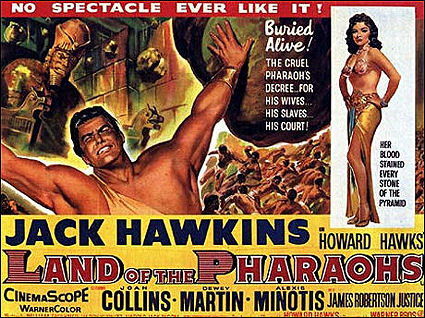“There’s no room for the concept of profit when it comes to taking care of people who are sick. Those questions of ‘how will this affect our bottom line? How will this affect our profits?’…these are immoral questions, and they should never be asked. We have to eliminate the private health care companies from the health care system. It’s time for them to go!” — Sicko director Michael Moore speaking at a very recent health care rally in Sacramento.
Esquire covers (Jolie, Johansson)
The hottest Esquire cover in several years, perhaps decades. I bought a copy in Newark airport last week, but until yesterday a thumbnail capture wasn’t viewable on the Esquire site….slackers.
The Jolie cover, of course, in no way makes up for the magazine’s (and particularly editor A.J. Jacobs‘) surreal, shark-jumping, bordering-on- deranged obsession last year with Scarlett Johansson. Esquire has been on indefinite probation status because of this. If it weren’t for those “What I’ve Learned” pieces, I would be boycotting the magazine right now over this. The only thing that will make up for the Johansson fixation right now is an online mea culpa statement from Jacobs and an apology from the editors.
Joe Queenan said it in the Guardian last December and I tried to explain the same thing last March: Johansson is over. Until she lucks into another semi-startling, Match Point-level part or re-invents herself in some other way.
Johansson’s acting repertory, Queenan said, “consists of staring intently at the person she is speaking to, keeping her lips spread apart, and hoping no one will notice that she is no threat to Meryl Streep, and not all that much of a threat to Hilary Duff.”
Radical Honesty
A 66-year-old Virginia-based psychotherapist named Brad Blanton, profiled by Esquire‘s A.J. Jacobs, “says everybody would be happier if we just stopped lying. Tell the truth, all the time. This would be radical enough — a world without fibs — but Blanton goes further.
“He says we should toss out the filters between our brains and our mouths. If you think it, say it. Confess to your boss your secret plans to start your own company. If you’re having fantasies about your wife’s sister, Blanton says to tell your wife and tell her sister. It’s the only path to authentic relationships. It’s the only way to smash through modernity’s soul-deadening alienation. Oversharing? No such thing.”
Signature of damnation
The day after that perplexing Sopranos finale, I compared it in one respect to the ending of Alfred Hitchcock‘s The Birds. Now MCN’s Larry Gross has compared it to unexpected killing of Janet Leigh in Hitchcock’s Psycho:
“There’s a famous choice in movie narrative that nominally offers resolution but in fact destroys the possibility of conclusiveness even more monstrously than this Soprano’s finale. That is the murder of Janet Leigh in Psycho, [which] did not emanate as an inspiration, from the psychological necessities of the character of Marion Crane in that movie, nor was it in any meaningful way a ‘resolution’ of her story.
“It was in fact the most aggressive insult to ‘meaning’ in the history of cinema. Marion Crane‘s death is precisely as black and arbitrary as the black screen that ended The Sopranos as a series.”
Gross also weighs in on did-Tony-get-hit?: ” Chase is not tantalizing us with specific narrative issues. There’s no one in the story left to kill Tony and the danger of a cop bust has already been covered in the scene with his lawyer. Tony’s anxious fearful looks to the door are not narratively specific. They are signatures of his soul’s perpetual divided state, as Michael Corleone‘s blank impassive stare was the signature of his damnation.”
Dowd on Chase
N.Y. Times columnist Maureen Dowd is calling Sopranos creator David Chase “an apocalyptic tease” and claiming that last Sunday night he “gave us a gimmicky and unsatisfying film-school-style blackout for an end to his mob saga, a stunt one notch above ‘it was all a dream.’ It was the TV equivalent of one of those design-your-own-mug places.
“Even though I loved the first few years of The Sopranos, Chase always struck me as passive-aggressive,” she opines. “The more fans obsessed on his show, the longer his hiatuses would grow and the slower his narrative velocity moved. His ending was equally perverse, throwing the ball contemptuously back at his fans after manipulating them and teasing them for an hour with red herrings — and a ginger cat.
“Surely, after eight years with this family, we deserved some revelation better than ‘life goes on…or not.'”
Obama would beat Republicans
“New York Sen. Hillary Rodham Clinton maintains a solid lead at 33%, followed by Illinois Sen. Barack Obama at 22%. [And] yet despite Clinton’s lead, Obama is the strongest Democrat in hypothetical match-ups with Republicans in the general election, running even or well ahead of the GOP’s top contenders. Obama would defeat Giuliani, 46% to 41%, the poll found. Clinton, in a showing that could spark concerns among some Democrats, does not fare as well. Against Giuliani, the poll found she would lose by 10 percentage points.” — from Michael Finnegan‘s L.A. Times story about a recent Times/Bloomberg poll.
“Sopranos” numbers
“The 11.9 million viewers who watched last Sunday’s The Sopranos finale brought HBO to the edge of an historic feat: a show on a pay cable network available in about 30 million homes was more popular last week than all but one show on the far larger world of broadcast television. Nielsen Media Research reports that only the premiere of NBC’s America’s Got Talent, with 13 million viewers, did better. ABC, CBS and Fox are all available in 111 million homes for no extra charge, and nothing they aired last week did better than The Sopranos.” — from an AP report on Breitbart.com.
“Invasion” trailer
Here we go with a trailer for The Invasion (Warner Bros,. 8.17), the latest revisiting of the old saw about emotionally barren ghouls taking over our bodies and souls after we fall asleep. Nicole Kidman is the central protagonist (i.e., analagous to Kevin McCarthy‘s role in Invasion of the Body Snatchers). Strange that pic seems to be using the Columbia Space Shuttle disintegration as a plot point, but whatever. Reports claim that the version shot by director Oliver Hirschbiegel (Downfall) didn’t sufficiently excite producer Joel Silver and/or the Warner Bros. suits, and he was pushed aside as a result.

“Straight Time” dialogue
Some fairly, rich, down-to-it dialogue from Straight Time, between Dustin Hoffman and Theresa Russell. Whenever I’ve thought of this film over the last 20-plus years, I’ve thought of this scene.
Sepinwall talks to Chase
Sometime recently (i.e., apparently after Sunday night’s Sopranos finale, which indicates yesterday), the Newark Star Ledger‘s Alan Sepinwall spoke to Sopranos creator David Chase in France, “where he’s fled to avoid ‘all the Monday morning quarterbacking’ about the show’s finale.”
Following this interview, Sepinwall writes, “Chase intends to go into radio silence, letting the work — especially the controversial final scene — speak for itself.
Except it doesn’t speak for itself. Not in any commonly decipherable sort of way. If it did there wouldn’t be so many thousands of people arguing what happened in that last scene. So let’s call a spade a spade: Chase is a gifted filmmaker who talks like a straight-shooter when in fact he’s an artful dodger and a bit of a film-flammer. (No offense, Chase, if you’re reading this.)
There is, however, one possible major “tell” in Sepinwall’s piece. Chase says one problem in doing a movie version is that “over the last season Chase [as] killed so many key characters.” Chase, says Sepinwall, “has toyed with the idea of ‘going back to a day in 2006 that you didn’t see, but then (Tony’s children) would be older than they were then and you would know that Tony doesn’t get killed. It’s got problems.”
Is Chase saying what I think he’s saying — that Tony “doesn’t get killed” and therefore wasn’t killed two nights ago?
“‘I have no interest in explaining, defending, reinterpreting, or adding to what is there,’ Chase says of the final scene.
“‘No one was trying to be audacious, honest to God,’ Chase adds. ‘We did what we thought we had to do. No one was trying to blow people’s minds, or thinking, ‘Wow, this’ll piss them off.’ People get the impression that you’re trying to fuck with them and it’s not true. You’re trying to entertain them.’
In Sunday night’s final scene, Tony Soprano waited at a Bloomfield ice cream parlor for his family to arrive, one by one. What was a seemingly benign family outing was shot and cut as the preamble to a tragedy, with Tony suspiciously eyeing one patron after another, the camera dwelling a little too long on Meadow’s parallel parking and a man in a Members Only jacket’s walk to the men’s room.
Just as the tension had been ratched up to unbearable levels, the series cut to black in mid-scene (and mid-song) with no resolution.
“‘Anybody who wants to watch it, it’s all there,’ says Chase, 61, who based the series in general (and Tony’s relationship with mother Livia specifically) on his North Caldwell childhood.
“Some fans have already assumed that the ambiguous ending was Chase setting up the oft-rumored Sopranos movie, but that doesn’t seem to be in the cards.
“‘I don’t think about (a movie) much,’ he says. ‘I never say never. An idea could pop into my head where I would go, ‘Wow, that would make a great movie,’ but I doubt it.
“I’m not being coy,” he adds. “If something appeared that really made a good Sopranos movie and you could invest in it and everybody else wanted to do it, I would do it. But I think we’ve kind of said it and done it.”
Tony was hit
“I’ve never sat through an entire episode of The Sopranos, but in watching the final four minutes of last night’s episode or so on YouTube [editor’s note: clip was just removed by HBO for copyright violation], Tony was hit. Period. Based on pure filmic language, that’s how it reads.
“If you have a character at the bar who keeps looking over, then he walks to the bathroom and the camera dollies to reveal the bathroom is just off to Tony’s side, providing the geography and the logistics. And there’s your answer. This show always had a very formal aesthetic, and this dolly was motivated.
“The abrupt cut to black was it. That’s how it happens in the mob, as per Goodfellas — no yelling, no nothing, it just happens.” — Video artist Jamie Stuart to Hollywood Elsewhere, received 6:15 pm, 6.11.07.
“Pharoah” DVD
I’ve always gotten a goofy kick out of Howard Hawks‘ Land of the Pharoahs (1955), which has an upcoming 6.26 DVD release. One reason is that a presumably half-drunk William Faulkner helped write the script. I don’t know of any eyewitness accounts of Faulkner’s behavior during this period, but if you were Faulkner wouldn’t you booze it up if you were stuck writing an ancient Egyptian costume flick?

Here are four more reasons: (1) those slinky bikini-harem costumes worn by costar Joan Collins (only 21 at the time of filming, and allegedly referred to in mid ’50s industry circles as “the British Open”), and the way Jack Hawkins, as the Pharoah Khufu, tears off her covering veil in an early scene, (2) Dimitri Tiomkin‘s grandiose, slam-bang musical score, (3) Hawkins’ tough-guy performance as an arrogant man of action, and (4) the finale that has a crying, screaming Collins (“I don’t want to die!”) realizing she’s been tricked into being buried alive inside Khufu’s pyramid.


